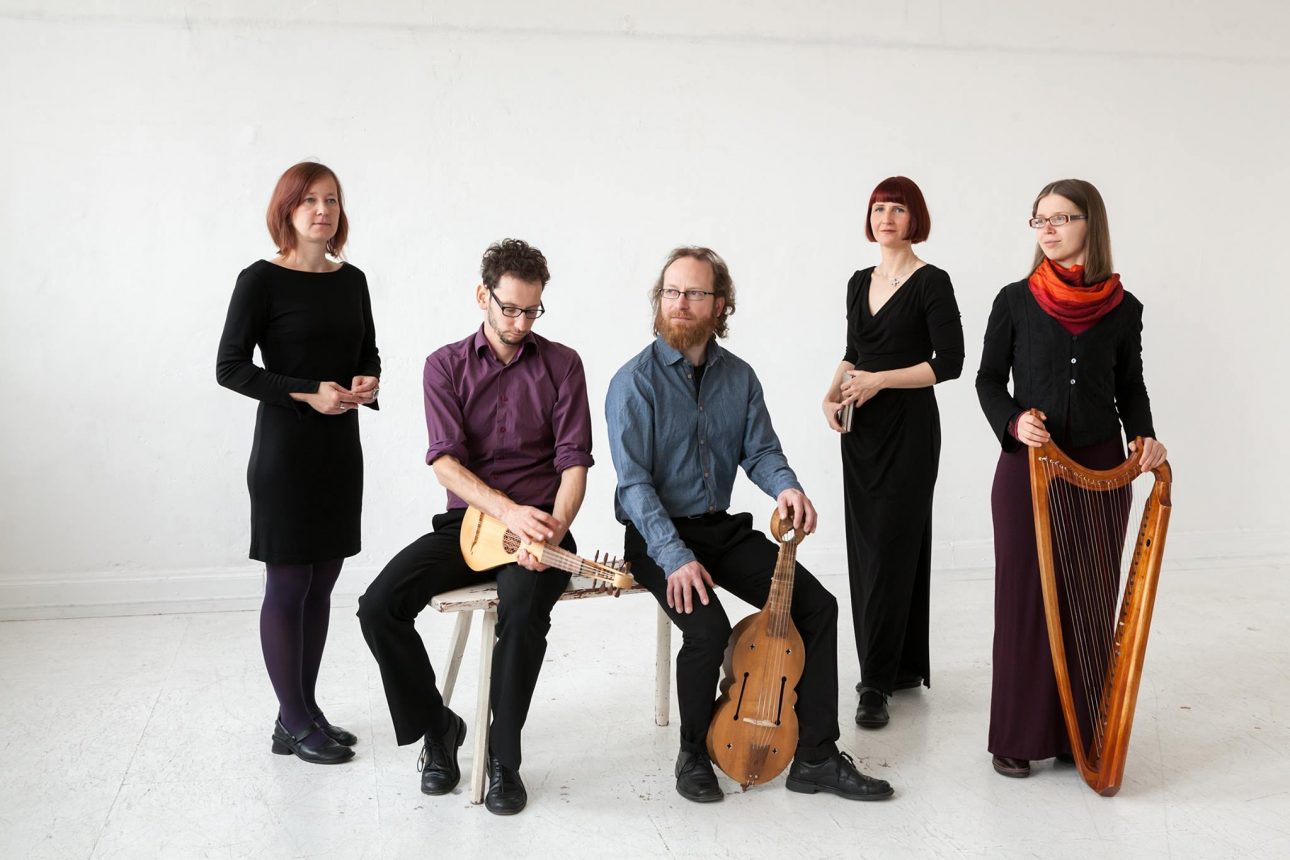The Nimmersêlich ensemble consists of five musicians from Leipzig who each found their own way to medieval music. Nimmersêlich has become one of the most important medieval music ensembles, extensively researching niche areas such as instrumentology, iconography, and costume studies.
Since its inception in 1999, the group has given countless concerts and performances in churches, castles, and monasteries, and has made guest appearances at various early music festivals in Germany and abroad. In the summer of 2004, Nimmersêlich released its debut album with the seasonally appropriate title “sumer zeitt”. This was followed by “puer natus” in 2009 for the Christmas season, and the latest production entitled “Der verlorene Klang” in 2020.
The ensemble take s special care to arrange pieces based on (copies of) original medieval manuscripts and fragments, with the aim of recreating the authentic performance styles of the era. Nimmersêlich’s repertoire reflects the great diversity of medieval musical styles from various eras and combines them into thematic concert programs.
The use of reconstructed medieval instruments, some of which were crafted by members of the group itself, takes the audience back to the time and environment when this music would have been heard. Nevertheless, the ensemble’s interpretations are carefully adapted to suit modern listening habits.
Where does the name »nimmersêlich« come from?
Music was once considered an essential part of everyday life. To be a minstrel in the Middle Ages, however, meant having practically no rights. The secular and clerical lords in particular considered these troubadours to be a thorn in their side. Traveling minstrels were unsteady and therefore difficult for the feudal lords to control, so they were demonized and ostracized as dishonest and morally questionable. They never had a chance at achieving salvation. To draw attention to their status in society, many minstrels adopted special stage names, such as “Lasterbalk” (bag o’ sins) , “Irrenfrid” (madman), “Hagelstein” (hailstone) or even “Nimmersêlich” (never holy).
One entry in the accounts book of a salt mine in Tyrol dating back to June 12, 1325, states the following: “chunradum ioculatori dicto nimmerselich [gulden] viii”. A minstrel named Konrad, whose stage name was nimmerselich, was given 8 gulden coins for his performance.

This otherwise unknown minstrel, Konrad, provided the inspiration for our ensemble’s name.



